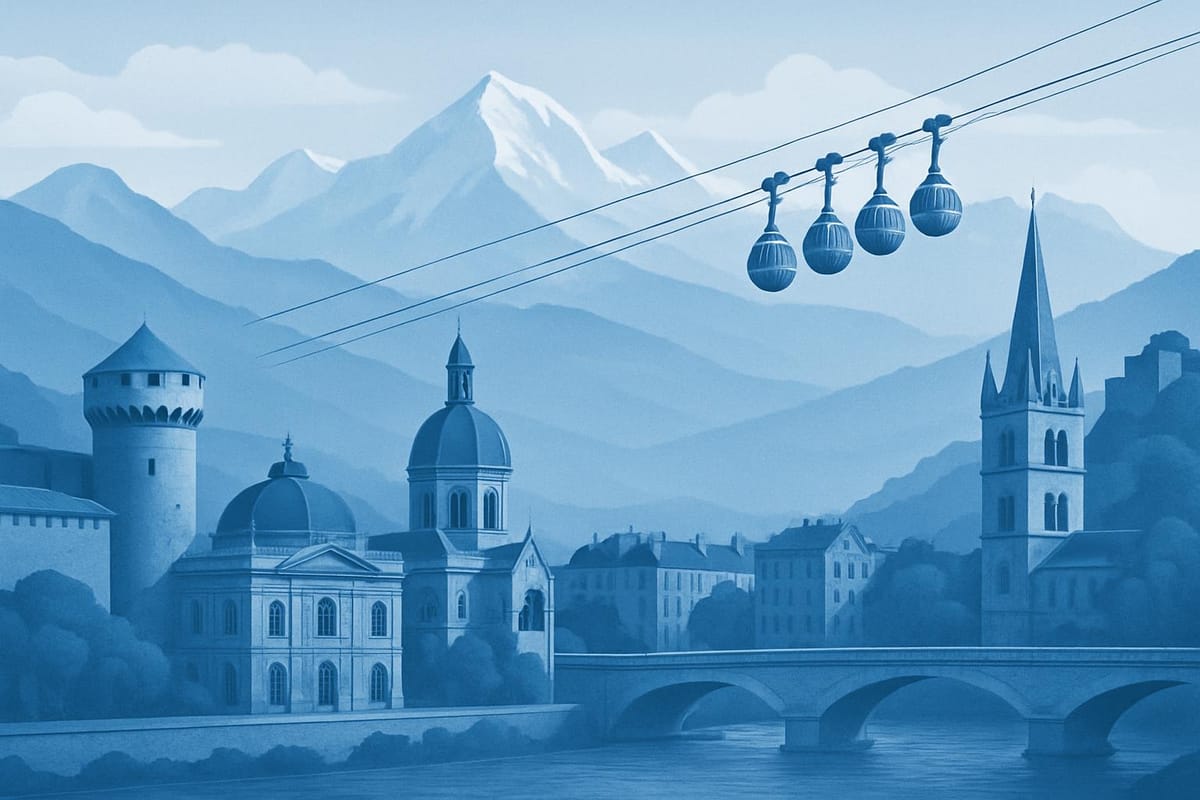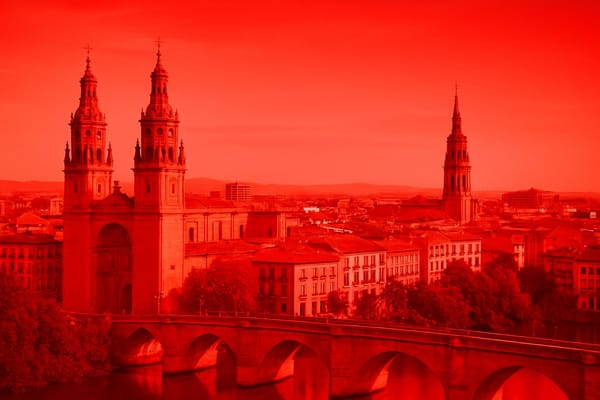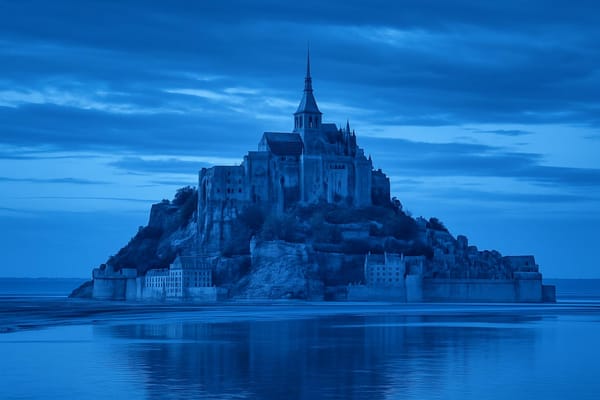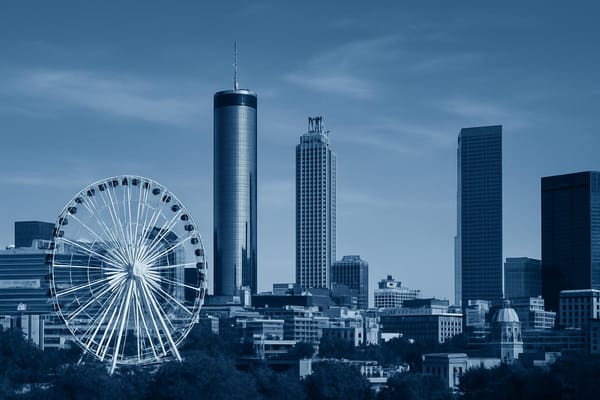Grenoble
Alps gateway: panoramic cable car, hiking, skiing, vibrant old town & top museums.

Important things to know about Grenoble
Grenoble, France sits at the foot of the Alps, where a dynamic urban rhythm meets mountain greenery, creating a distinctive blend of innovation and everyday life; with a compact city center, extensive research institutions and a large student population, Grenoble has forged a reputation as a European hub for science, technology and higher education while maintaining a strong sense of local identity and community. Streets pulse with the energy of students, researchers and professionals commuting by tram, bike or on foot, and the city’s economy is driven by a mix of public research labs, tech companies and small businesses that foster a culture of entrepreneurship and collaboration; this concentration of talent makes Grenoble attractive for international professionals and startups seeking close links between academia and industry. The urban fabric balances modern developments and residential neighborhoods with parks and riverside promenades, offering varied housing, lively markets and a culinary scene that reflects Alpine influences alongside Mediterranean touches. Seasonal changes shape daily life - winters bring crisp air and a focus on mountain sports while summers invite outdoor cafés and cultural events - and local transport, cycling infrastructure and municipal initiatives emphasize sustainability and accessibility. Multicultural influences, numerous languages and a continual influx of students contribute to a cosmopolitan atmosphere, and public services, health care and educational opportunities strengthen the city’s appeal for families as well as young professionals. Altogether, Grenoble projects a pragmatic, forward-looking character rooted in scientific excellence, outdoor lifestyle and an evolving urban quality of life that consistently draws visitors, residents and investors interested in a balanced, innovative European city.
Sightseeing hot-spots in Grenoble
Grenoble is a vibrant city in southeastern France often called the Capital of the Alps, and it offers spectacular sightseeing for visitors seeking both urban charm and mountain panoramas. Perched where the Isère River winds through dramatic peaks, the city’s most famous vantage is La Bastille, an 18th-century fortress accessible by the iconic Téléphérique cable car. From that viewpoint you get sweeping views of the French Alps, perfect for photography, sunrise hikes or simply appreciating the contrast between historic streets and snowy summits. Travelers searching for “things to do in Grenoble” will often start here to orient themselves and capture the defining scenery that makes Grenoble attractions so memorable.
Beyond its dramatic skyline, Grenoble’s cultural scene is rich and compact, ideal for exploring on foot. The Musée de Grenoble houses an impressive collection of modern and classical art, while the Musée Dauphinois tells the story of regional life in Isère. Meandering through the old town reveals narrow lanes, lively cafés, and elegant squares where local markets offer seasonal produce and artisan goods. Grenoble’s efficient tramway system makes it easy to hop between neighborhoods, and the combination of museums, boutiques and historic architecture ensures culture lovers find plenty to do in Grenoble France without long transfers.
Outdoor enthusiasts will find Grenoble a gateway to adventure year-round, with Parc Paul Mistral providing green space in the city center and immediate access to hiking, mountain biking and winter skiing in nearby resorts like Chamrousse and Vercors. Day trips to the Chartreuse massif or guided climbs in the Belledonne range are popular options for active visitors. Food lovers can enjoy hearty alpine fare and refined local cuisine in bistros that pair regional cheeses and wines with contemporary cooking. Whether seeking urban sightseeing or mountain escapes, Grenoble offers a balanced mix of history, culture, and natural beauty that ranks high among must-see French destinations.
Hotels to enjoy in Grenoble
Grenoble is a vibrant gateway to the French Alps, and travelers searching for hotels in Grenoble will find options to suit every taste and budget. The city blends historic streets with modern infrastructure, so many Grenoble hotels sit within easy walking distance of cultural highlights like the Bastille hill, the Isère River promenade and lively markets. Business travelers appreciate accommodations near the Gare de Grenoble, where straightforward connections make day trips to nearby ski resorts and mountain trails simple. Whether you prefer a boutique property with local charm, a luxury hotel offering panoramic mountain views, or a budget stay that keeps expenses low, the selection of hotels supports comfortable stays with amenities such as free Wi‑Fi, on-site dining, and concierge services for outdoor activities.
Finding the right accommodation in Grenoble also means considering seasonal needs: winter visitors often prioritize proximity to transport links for the slopes, while summer guests look for access to hiking, cycling and terraces with sunlit views of the peaks. Many hotels provide family-friendly rooms, business facilities and eco-conscious options that reflect Grenoble’s commitment to sustainability and urban green spaces. Local neighborhoods offer varied atmospheres-from the dynamic city center with shops and nightlife to quieter quarters near parks and university campuses-so reading reviews and checking maps helps secure the ideal base for exploring museums, alpine excursions and regional cuisine. Thoughtful choices among the diverse hotels in Grenoble will enhance any trip, turning a practical stay into a memorable mountain-city experience.
Restaurants to try in Grenoble
Grenoble is a vibrant city where restaurants in Grenoble mix classic French cuisine with bold Alpine flavors, creating a culinary scene that appeals to both locals and visitors. From cozy bistros tucked into old streets to contemporary dining rooms with panoramic views of the surrounding peaks, the gastronomic offerings reflect the region’s rich terroir: think robust cheeses, house-cured charcuterie, wild mushrooms and vegetables sourced from nearby markets. Many chefs emphasize farm-to-table principles and seasonal produce from the Isère valley, so menus change with the harvest and showcase the best of local suppliers. Whether you crave a relaxed brasserie meal after a day on the slopes or an inventive tasting menu inspired by the mountains, Grenoble’s eateries provide varied options for every palate and budget.
For travelers and food lovers searching for the best restaurants Grenoble has to offer, exploring neighborhood streets reveals hidden gems where warmth, creativity and tradition meet on the plate. Dining in Grenoble is as much about ambiance as it is about taste: many places pair regional wines and craft beers with convivial service and artisanal desserts that highlight local ingredients. With a growing interest in sustainable dining and culinary innovation, Grenoble continues to attract chefs who reinterpret classic recipes while honoring the region’s culinary identity. Whether you’re writing a travel guide or planning an evening out, mentioning Grenoble restaurants, local produce and Alpine cuisine helps capture the city’s flavorful appeal and improves discoverability for readers seeking memorable dining experiences.
Best shopping stops in Grenoble
Grenoble is a vibrant destination for shopping in Grenoble, where the historic centre blends contemporary style with mountain-town charm. Strolling along Rue de la République and the pedestrian streets radiating from the tram-lined centre-ville, visitors discover a mix of chic boutiques, well-known department stores like Galeries Lafayette, and independent designers offering seasonal fashion and unique accessories. Window-shopping transitions easily to serious retail therapy with concept stores and flagship shops displaying French labels, while the city’s compact layout makes it simple to combine shopping with café stops and people-watching. Whether you’re searching for haute couture, everyday wear, or tasteful home décor, the variety of retail options ensures that Grenoble shopping appeals to fashion-savvy tourists and local trendsetters alike.
Beyond fashion, Grenoble’s markets and specialty stores highlight the region’s gastronomic and artisanal strengths, making them essential for a full shopping experience. The lively Les Halles and weekly street markets showcase local produce, cheeses, charcuterie, and Provençal flavors that are perfect for culinary souvenirs. Artisans and craft shops in the old quarters sell handmade goods, pottery, and contemporary design pieces that reflect the Auvergne-Rhône-Alpes heritage. Outdoor enthusiasts will also find a wealth of ski shops and retailers for outdoor gear catering to the nearby Alps-ideal when combining a shopping trip with a mountain getaway. From gourmet treats and artisan finds to practical equipment for alpine adventures, Grenoble offers a well-rounded and memorable retail scene for every visitor.
Nightlife highlights in Grenoble
Grenoble nightlife comes alive with a vibrant mix of bars, live music venues and late-night terraces that cater to students, locals and visitors looking for memorable evenings. Strolling through Place Grenette and the pedestrian streets, you’ll find cozy cocktail bars, trendy craft beer pubs and energetic spots offering everything from indie rock to electronic DJs. The student energy gives the city a dynamic, affordable night scene, while quieter corners along the Isère river appeal to those seeking relaxed afterwork drinks. For anyone searching for the best nightlife in Grenoble or ideas for things to do in Grenoble at night, the combination of friendly locals, diverse music programming and accessible nightlife options makes the city a compelling destination.
When you want to extend the evening, the historic hill of the Bastille offers impressive mountain views after sunset and occasional open-air events, giving nightlife in Grenoble a unique alpine twist. Small concert halls and cultural spaces host jazz sessions, band nights and themed club nights, satisfying both fans of live performances and the clubbing crowd. Whether you’re hunting for a late-night dancefloor, a craft beer tasting or a mellow acoustic set, Grenoble’s nightlife hotspots deliver variety and atmosphere that keep the city buzzing until the early hours.
Getting around in Grenoble
Grenoble’s airport and train situation offers practical options for travelers heading to the Grenoble Alps: the local Grenoble–Isère Airport handles a mix of seasonal and year-round flights and is served by taxis, car rentals and shuttle transfers that link the airport with the city and nearby ski resorts, while larger international hubs such as Lyon and Geneva remain popular alternatives for more frequent long‑haul and low‑cost connections; on the rail side, Grenoble train station is a busy regional hub with SNCF TER services providing regular, reliable connections to surrounding cities and valleys and convenient links to national rail services via transfer points, making it straightforward to reach Grenoble by train for both everyday commuters and tourists, with integrated local transport options like the tramway and buses to complete the last mile; whether you search for “how to get to Grenoble” by plane or rail, the mix of airport transfers, regional trains and local public transport gives good flexibility and seasonal enhancements for ski and mountain travel, so planning ahead will ensure smoother connections and better value.
Culture must-see's in Grenoble
Grenoble’s cultural landscape is a striking blend of historic charm and contemporary creativity set against the backdrop of the French Alps. Strolling from the medieval heart to the panoramic terraces of the Bastille, accessed by the famous cable car, visitors discover a compact city where museums and galleries flourish: the renowned Musée de Grenoble, with its encyclopedic art collections, sits alongside cutting-edge institutions like Le Magasin - Centre National d'Art Contemporain and the evocative Musée Dauphinois. The city’s architecture and public art-murals, sculptures and experimental installations-give each neighborhood its own character, while venues such as MC2 and La Belle Électrique host theatre, dance and live music that pulse through the seasons. This interplay of past and present makes Grenoble a standout destination for culture lovers seeking both depth and discovery.
Beyond formal institutions, Grenoble’s cultural highlights are rooted in everyday life: lively markets, local gastronomy, and a vibrant calendar of festivals and performances that celebrate music, cinema and street arts. The Halles Sainte-Claire and artisanal shops reflect regional culinary traditions, while contemporary art residencies and collaborations with scientific research centers foster innovative projects where art meets technology. Whether you’re chasing panoramic views after a gallery visit, attending a late-night concert, or sampling mountain-influenced cuisine, Grenoble offers a dynamic cultural experience that balances regional identity with international ambition-an inviting city for tourists and culture seekers eager to explore France’s alpine cultural capital.
History of Grenoble
Grenoble's long and layered past begins where the Isère river winds at the foot of the Alps, a strategic crossroad that shaped the city's identity from antiquity to modernity. The settlement first appears in records under the Roman name Cularo, later renamed Gratianopolis in honor of the emperor Gratian, and evolved into a fortified medieval town dominated by bishops and local lords. As capital of the historic province of Dauphiné, Grenoble played a central role in regional politics and culture: its streets and markets were conduits for Alpine trade, and craftsmen in the surrounding valleys produced goods that connected mountain life to the wider markets of France and beyond. The city’s early modern era saw civic assertiveness crystallize during the famous "Day of the Tiles", an episode that foreshadowed the French Revolution and exemplified Grenoble’s reputation for political engagement. Throughout these centuries, the presence of religious orders, the founding of educational institutions-roots of the University of Grenoble-and evolving urban defenses mirrored the broader European transitions from feudal fragmentation to centralized statehood, embedding Grenoble in the historical currents of war, reform, and cultural exchange.
Industrialization and the twentieth century transformed Grenoble from a provincial stronghold into a dynamic scientific hub and Alpine capital. The rise of the silk industry, precision manufacturing, and glove-making in the 19th century brought wealth and urban expansion, while harnessing mountain rivers for hydroelectricity in the early 20th century laid the groundwork for technological growth. Grenoble’s population swelled as laboratories and institutes multiplied after World War II; the city became synonymous with research institutions, high-tech engineering, and advanced materials, attracting national centers of science and innovation. Grenoble was also a center of courageous resistance during the war years, and post-war reconstruction and modernization culminated in a moment of global visibility when the city hosted the 1968 Winter Olympics, showcasing both its Alpine setting and modern infrastructure. Today Grenoble balances its deep historical roots with a forward-looking economy: historic neighborhoods and fortifications like the Bastille overlook research parks, ski resorts and mountain trails remain a heartbeat of local life, and the interplay of past and future continues to make the history of Grenoble a compelling story of geography, industry, and resilience in the heart of the French Alps.



